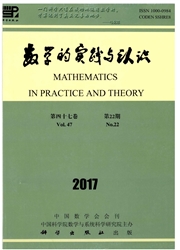

 中文摘要:
中文摘要:
基于综合资产收益率平价理论构建理论模型,研究探讨了中国跨境短期资本流动规模与资产价格及人民币汇率预期变动之间的动态关系.然后在此基础上通过建立VAR模型,采用格兰杰因果检验以及脉冲响应分析等方法实证分析了2010年7月至2015年6月中国跨境短期资本流动、人民币汇率预期波动、利率、房价和股价变动之间的关联关系.实证结果表明:中国房地产市场、股票市场上涨会吸引短期跨境资本流入;美元利率上升和人民币贬值预期会引致短期跨境资本的流出;短期跨境资本流入会造成国内利率降低,但对房地产市场、股票市场的影响不显著;中国房地产市场与股票市场之间会有联动效应,人民币的贬值预期也会引致房地产价格下降.
 英文摘要:
英文摘要:
Based on the Theory of Assets Return Rate Parity, the theoretical model is established to describe the correlation of China's short-term cross-border capital flow with the volatility of RMB exchange rate and assets' prices in China in this paper. And then, an empirical study is conducted based on monthly data from July 2010 to June 2015. The results show that, the rising of Chinese house price and of the index of Chinese stock market will attract the inflow of short-term cross-border capital, while the rising of Dollar's interest rate of Libor and the expected depreciation of RMB's exchange rate will cause the outflow of short-term cross-border capital. And the inflow of short-term cross-border capital will lower the interest rate of RMB, have not notable influences on Chinese house price and stock price. Chinese house price and stock price will positively influence each other and the expected depreciation of RMB's exchange rate will bring Chinese house price down.
 同期刊论文项目
同期刊论文项目
 同项目期刊论文
同项目期刊论文
 期刊信息
期刊信息
